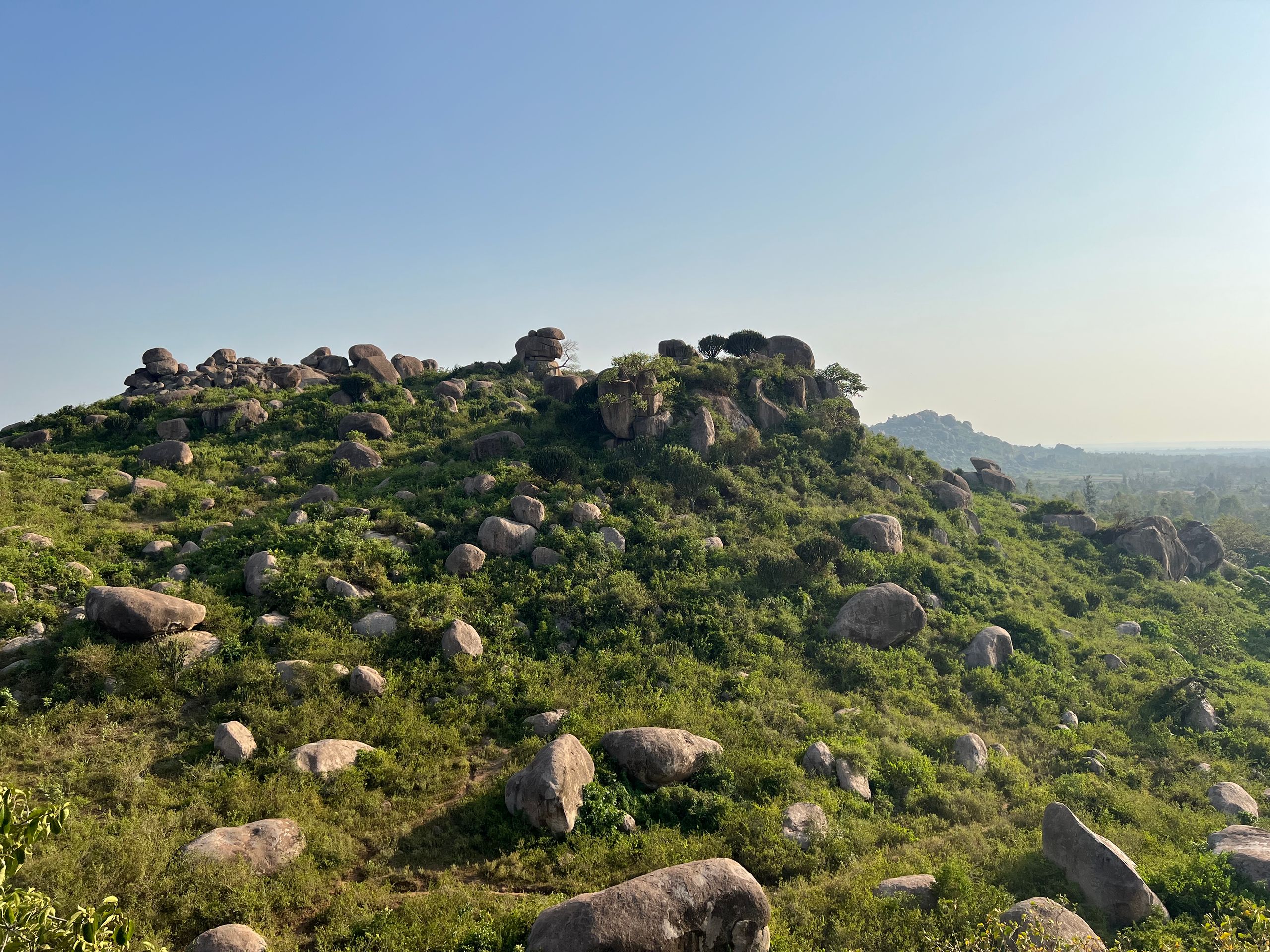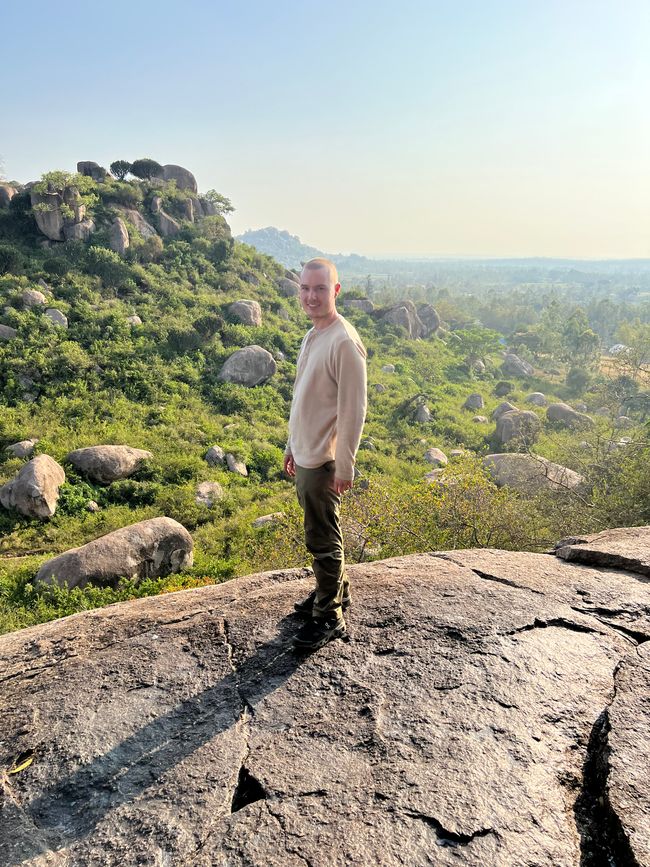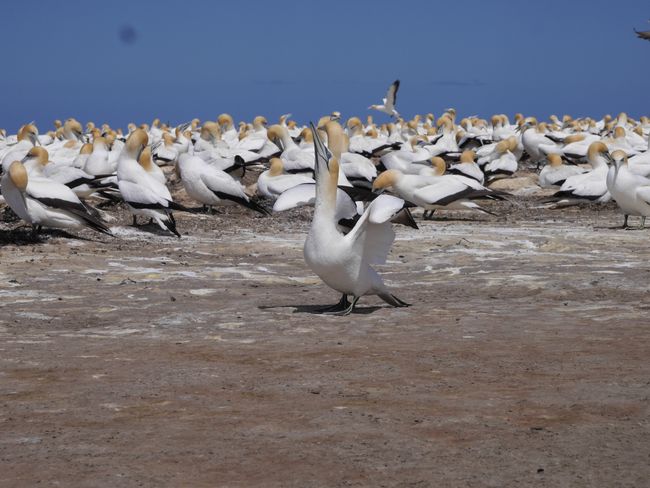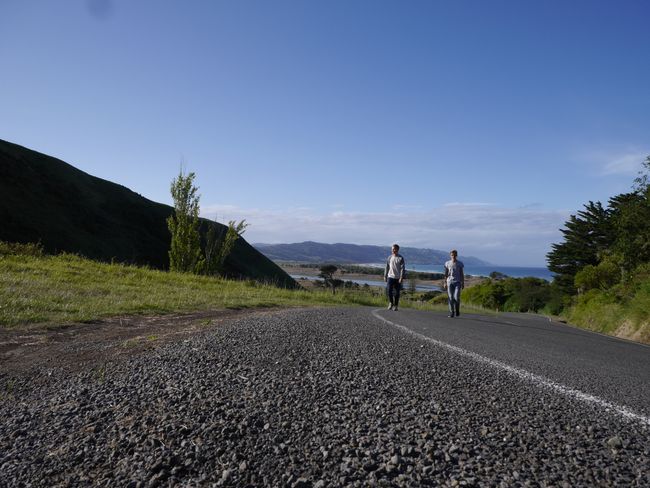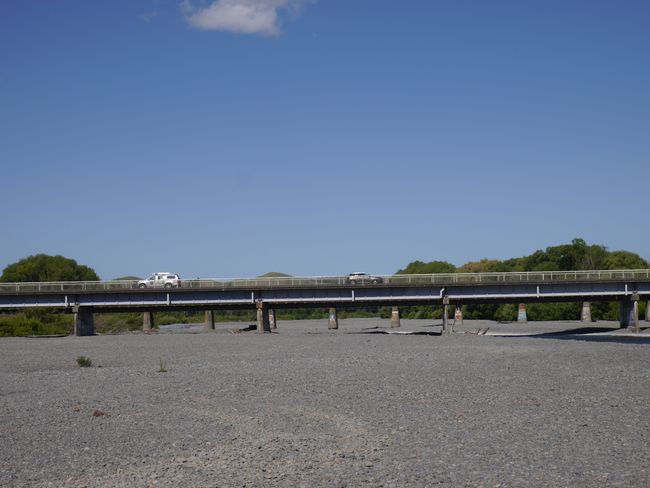Ab in den Süden
ຈັດພີມມາ: 06.11.2018
ຈອງຈົດຫມາຍຂ່າວ
Day 34
I'm sitting in a dried-up river bed in the shade of some trees on the bank. To the left are two bridges with cars crossing over them, in front of me is a small flow of water, and all around me is nature. We are in Waipawa.
Waipawa is inland on the North Island, and for the first time on our journey, we are driving through the country for several days instead of along the coast where we saw the ocean every day. It's not far to Wellington anymore.
After leaving Napier yesterday, we continued east to Cape Kidnappers, a peninsula surrounded by steep cliffs that forms the southern boundary of Hawkes Bay. There are no public roads there, so we took a three-hour bus tour to the top of the cape. It's home to the largest colony of gannets in the world. 25,000 birds live there from October to April in four different areas before flying to Australia for eight days in April, where they spend the winter. The gannets have a wingspan of two meters, and it's quite impressive to see them fly just a few centimeters above our heads towards the open sea.
Equally impressive is the drive to this remote place, through the artificially green landscape of sheep, turkeys, rabbits, paradise ducks, and extremely tame cows.
After this trip into the middle of nowhere, we drove to our campsite by the sea and set off for Waipawa today. On the way there, we stopped at Te Mata Peaks, about 400 meters high, from where you have a 130 km view of the hilly landscape of the region.
Even so, we arrived at the campsite relatively early in the afternoon to have time to recharge all our devices, take a relaxed shower, and just sit in a past river doing nothing.
The remaining nights until the southern tip of the North Island are mainly to avoid driving to Wellington in one day, but who knows what will come along the way.
After finishing writing, I will sit here a little longer and enjoy the peaceful calm. As cliché as it may sound, there is no better way to describe this atmosphere.
Then I will eventually go back, and later there will be fried potatoes.
When you don't rely on the internet (logically), you don't get to know what's happening in Germany at the moment. We've also talked to many locals (it's not uncommon for us to be invited for tea and biscuits), and it's noticeable that for them, the situation in Europe and Germany is very far away. It's good when people here know who the Chancellor of Germany is or if they know Hamburg. And as absurd as this may seem, it's also obvious to me, because New Zealand is actually the country that is farthest away from Germany. It's good. And it has its charms. Whether I chose New Zealand as a destination for our trip for this reason among others, is up for debate.
At least it's good to be a little disconnected from this environment, to talk to people who have a completely different perspective on the world not just because of the 12-hour time difference. To see that the world also goes on normally here and that people can only judge certain events from our daily lives from a huge distance and therefore not very often, they don't have to create a perspective. We don't have to do that either, and we do it less and less. Although it's sometimes hard with all the Wi-Fi hotspots here on the North Island. Just quickly scrolling through Facebook. Taking a quick look at what's happening.
I can imagine that it will happen less and less over time. Also because of the experience we gain, let alone the probably frequent lack of internet on the South Island or in Argentina. We now live here, on the other side of the world.
The sun is shimmering in the puddle left behind by the river.
The afternoon is coming to an end, and it's slowly becoming morning in Germany. But that doesn't matter.
ຈອງຈົດຫມາຍຂ່າວ
ຄໍາຕອບ

ລາຍງານການເດີນທາງ ນິວຊີແລນ
